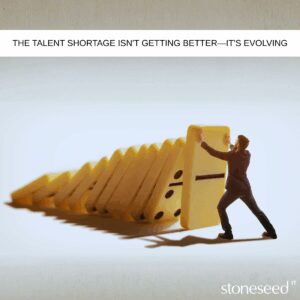David Cotgreave

Written Articles
Most organisations are excellent at delivering projects. Ensuring those projects are still relevant five years later is often a different matter.
Budget season is looming, and leadership teams are asking the same question in different ways: how do we get more for less, without storing up problems for the future?
The tale of an unlikely hero, whose glowing red nose guides Santa’s sleigh through the gloomiest fog, has warmed hearts for generations.
(WARNING: TONGUE-IN-CHEEK BLOG AHEAD)
There’s a dangerous new trend creeping into IT project and change portfolios: organisations quietly swapping contractors and permanent headcount for Project Management as a Service (PMaaS).
Terrible idea. PMaaS is suspiciously good at saving money, reducing stress and getting projects delivered on time and within budget, and frankly, where’s the fun in that?
I was in a project review meeting last Thursday (actually it was more like a project intervention) and witnessed something I’ve seen too many times before. The Project Manager was desperately trying to explain to a roomful of increasingly frustrated stakeholders why half the transformation requirements wouldn’t make it into the initial go-live. The problem? No one had properly prioritised anything at the start. Every business process change had been labelled “critical.” Every system integration was “essential.” Every data migration activity was “urgent.”
“I’m not a carrier pigeon!!!”
These are words that you don’t expect to hear from a Project Manager.
We laugh about it now, but when exasperated PM Marcus blurted this out after leaving a meeting, it was a cry for help.
“Of all our administrative staff, you’re the best paid by far.”
Ant from London is an experienced Project Leader, at his recent annual appraisal he was told this by the Director of People. It was meant kindly, motivational even, but it sums up one of the biggest misconceptions about project management. The idea that PMs are just administrators with fancy job titles.
Ant was fairly chilled out about the backhanded compliment, as PMs we know our value, his CIO took more of a dim view and gave the People Director a piece of his mind – we are with the CIO!
You may have heard similar…
It’s often said that projects fail because of bad technology choices, flawed strategies, creeping scope or shifting business priorities. Often though, the real culprit is much simpler — and scarier.
It’s a lack of people.
Or, more specifically, a lack of the right people at the right time.
BREAKING NEWS | We’ve just been told we’re not allowed to use the C-word in the office!!!!
Yes! Mentioning Christmas has been banned!! (Until the end of the month at least!!)
Apparently, it’s bad luck!
Maybe there is something in that.
The numbers are stark. By 2035, the world will need 30 million additional project professionals to meet global demand. Yet while organisations scramble to fill gaps, most are still relying on outdated resourcing models that simply don’t work in 2025.
The Talent Shortage Isn’t Getting Better—It’s Evolving
Remember when the biggest problem was just finding enough candidates? That was the tip of the iceberg.
A CIO friend has just switched firms and, when he suggested Project Management as a Service (PMaaS) as an alternative to hiring and contractors, the response from the CFO, COO and CEO was: “who?”.










